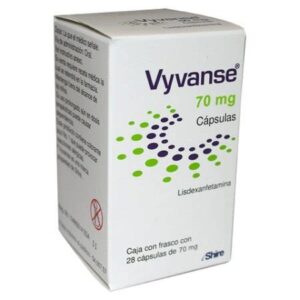Adderall, a prescription medication primarily used to treat attention deficit hyperactivity disorder (ADHD) and narcolepsy, combines two stimulant medications: amphetamine and dextroamphetamine. The 30mg dose of Adderall is often prescribed to individuals who require a higher concentration of medication to manage their symptoms effectively.
What is Adderall?
Adderall is a brand name for a combination of amphetamine salts, which work by balancing certain chemicals in the brain. This medication is classified as a central nervous system (CNS) stimulant and is commonly prescribed for both children and adults diagnosed with ADHD. As of the latest updates, its ability to enhance focus, attention, and impulse control has made it a popular choice in the medical community.
How Does Adderall Work?
Adderall affects the brain’s neurotransmitters, particularly dopamine and norepinephrine. These neurotransmitters play crucial roles in regulating mood, attention, and behavior. By increasing the levels of these chemicals, Adderall helps improve concentration, reduce impulsivity, and enhance overall cognitive performance. This stimulant effect can significantly benefit individuals with ADHD, allowing them to navigate daily tasks more efficiently.
Uses of Adderall 30mg
Adderall 30mg is prescribed for various reasons:
1. ADHD Management: The most common use of Adderall is for treating ADHD in both children and adults. The medication can help to improve focus, attention span, and control over hyperactive or impulsive behaviors.
2. Narcolepsy Treatment: Adderall is also used to treat narcolepsy, a sleep disorder characterized by excessive daytime sleepiness and sudden sleep attacks. The stimulant effects of Adderall can help individuals stay awake and alert during the day.
3. Off-Label Uses: Some healthcare providers may prescribe Adderall for off-label use, such as for treatment-resistant depression, binge eating disorder, or cognitive enhancement in healthy individuals. However, it’s essential to use Adderall only under medical supervision.
Dosage and Administration
Adderall is typically available in tablet form in various dosages, including 5mg, 10mg, 20mg, and 30mg. The 30mg dosage is often used for individuals who require a higher dose for effective symptom management.
How to Take Adderall
1. Follow Your Doctor’s Instructions: Always follow the prescribed dosage and schedule provided by your healthcare provider.
2. Timing Matters: Adderall is usually taken once or twice daily, with or without food. Morning doses can help manage symptoms throughout the day without affecting sleep.
3. Consistent Use: It’s essential to take Adderall consistently to maintain stable medication levels in your system.
4. Never Self-Adjust: Do not increase or decrease your dosage without consulting your healthcare provider, as this can lead to adverse effects.
Potential Side Effects of Adderall
Like any medication, Adderall 30mg can cause side effects. While not everyone will experience these side effects, it’s crucial to be aware of them.
Common Side Effects
- Insomnia: Difficulty sleeping is a frequently reported side effect, especially if taken too late in the day.
- Loss of Appetite: Many users experience a decrease in appetite, which can lead to weight loss.
- Dry Mouth: A common complaint, users may notice their mouths feeling drier than usual.
- Increased Heart Rate: Stimulants can increase heart rate, which may be concerning for individuals with existing heart conditions.
Serious Side Effects
Although rare, some serious side effects require immediate medical attention:
- Cardiovascular Issues: Irregular heartbeat, chest pain, or signs of heart problems.
- Mental Health Changes: Symptoms such as new or worsening depression, anxiety, hostility, or aggressive behavior.
- Circulation Problems: Signs include fingers or toes becoming numb or cold, changes in skin color, or painful sores.
Risks and Considerations
While Adderall can be effective, it also comes with risks that should be thoroughly discussed with your healthcare provider. Below are essential considerations:
1. Addiction Potential: As a stimulant, there is a risk of developing a dependency on Adderall, especially in individuals with a history of substance abuse.
2. Pre-existing Conditions: It’s important to disclose any other medical conditions, particularly heart problems, mental health disorders, or a history of substance use.
3. Drug Interactions: Certain medications, including some antidepressants and blood pressure medications, can interact with Adderall. Always inform your doctor about all medications you are taking.
Alternative Treatments for ADHD
For those concerned about the risks associated with Adderall, various alternative treatments exist for managing ADHD:
- Behavioral Therapy: Cognitive-behavioral therapy (CBT) can help individuals develop coping strategies and behavioral changes to manage symptoms effectively.
- Other Medications: Non-stimulant medications such as atomoxetine (Strattera) can be an option for some individuals who cannot tolerate stimulants.
- Lifestyle Changes: Implementing regular exercise, a healthy diet, and sleep hygiene practices can positively impact ADHD symptoms.
- Support Groups: Connecting with others who have ADHD or their families can provide emotional support and practical advice.





Reviews
There are no reviews yet.